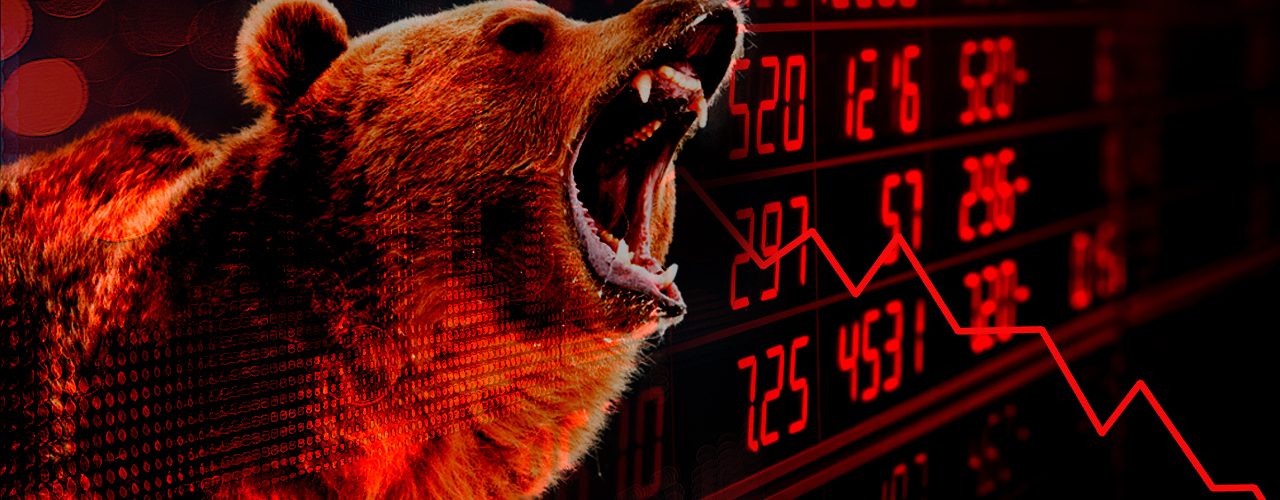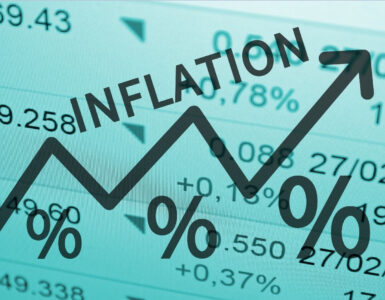Stock futures higher as ‘bear market rally’ continues; Week Ahead: inflation back in focus as rate bets subside; G-7 leaders mull price cap on Russian crude; Nike shares higher ahead of Q4 earnings and Frontier sweetens Spirit Airlines bid, gets ISS approval.
Here are five things you must know for Monday, June 27:
1. — Stock Futures Higher As ‘Bear Market Rally’ Continues
U.S. equity futures bumped higher Monday, extending a modest rally on Wall Street that has lifted stocks higher in the face of persistent recession concerns.
The S&P 500 has risen by around 6.7% since bottoming out early last week, taking the broadest benchmark of U.S. stocks back towards the 4,000 point mark as investors quietly ease back into global risk markets while eyeing the prospects of slower growth, faster inflation and central bank responses to both.
The so-called bear market rally has yet to gain full conviction on Wall Street, however, as stock funds saw their biggest outflow in nine weeks last week, according to data from the Bank of America “Flow Show” report, while Treasury bond yields continue to flash recession warnings heading into the final trading days of the the worst first half performance for stocks in five decades.
The yield gap between 10-year Treasury bonds and 2-year notes is now hovering at around 9 basis points, modestly wider than last week but still close enough to the inversion level that traders cite as a signal for near-term recession.
Growth prospects were clipped overnight, as well, by a weaker-than-expected reading for profits generated by China’s biggest industrial firms last month, which fell 6.5% from last year despite a rebound in activity from the country’s Covid restrictions.
Still, global equity benchmarks are moving higher again Monday, with Europe’s region-wide Stoxx 600 marked 0.92% into the green in early Frankfurt trading while Asia’s MSCI ex-Japan benchmark gained 1.75%.
On Wall Street, futures tied to the Dow Jones Industrial Average are indicating a 90 point opening bell gain while those linked the S&P 500, which is down 18% for the year, are priced for a 16 point gain.
Futures linked to the tech-focused Nasdaq are looking at a 67 point opening bell gain.
2. — Week Ahead: Inflation Back in Focus As Rate Bets Subside
The Federal Reserve’s inflation fight will likely resume its place at the forefront of Wall Street’s focus this week as investors look to test the mettle of the current equity market rebound.
The PCE Price Index, is likely to show a modest deceleration of inflation pressures when data from the Fed’s preferred gauge is published on Thursday, although the true test will be in and when that is followed-through into the market’s favorite reading – the heading consumer price index.
At present, the CME Group’s FedWatch tool is already indicating some pullback on bets for faster rate hikes, although a 75 basis point move in July is essentially priced-in by Wall Street.
Alongside Thursday’s inflation reading, investors will get their final estimate of first quarter GDP growth from the Commerce Department on Wednesday, as well as the Conference Board’s closely-tracked reading of consumer confidence on Tuesday.
3. — G-7 Leaders Mull Price Cap On Russian Crude
Leaders of the so-called G-7, a collective of the seven richest western democracies as well as Japan, are reportedly nearing an agreement to place a cap on the price of crude exports from Russia.
The decision, which is expected to come from the G-7 communique, would see extended sanction on Russia’s economy that include a maximum price that allies will pay for its oil, a move designed to limit energy-related revenues for Vladimir Putin’s government as it wages its war on Ukraine.
“The goal here is to starve Russia, starve Putin, of his main source of cash and force down the price of Russian oil to help blunt the impact of Putin’s war at the pump,” an official in President Joe Biden’s administration told reporters late Sunday.
WTI crude futures for August delivery were marked 26 cents higher on the session at $107.88 each while Brent contracts for the same month, the global pricing benchmark, added 44 cents to trade at $113.54 per barrel.
Leaders appeared buoyed by news that Russia has defaulted on payments due from two sovereign bonds — one denominated in dollars and the other in euros — following the expiration of a 30-day grace period over the weekend.
The default, Russia’s first in more than a century, suggests sanctions on the country’s ability to trade, as well as the cost of its war effort, are starting to bite.
4. — Nike Shares Higher Ahead of Q4 Earnings
Nike NKE shares edged higher in pre-market trading ahead of the sports apparel group’s fourth quarter earnings after the close of trading.
Nike is expected to post earnings of 81 cents per share, down from 93 cents over the same period last year, on revenues of around $12.075 billion. The group declined to provide guidance for its coming fiscal year when it reported third quarter earnings in March, but noted that “marketplace demand continues to exceed available supply as inventory supply begins to normalize … setting the foundation for another year of strong growth.”
A host of Wall Street analysts, however, have lowered their price targets on Nike stock, citing the impact of Covid restrictions in China on both the group’s broader supply chain and its overall sales in the country, which topped $2.1 billion last quarter.
Deutsche Bank lowered its target price by 13%, to $152 per share on Thursday, following on from a modest nudge lower by Cowen & Co. to $133 per share.
Last week, Bank of America said that “conditions in China remain clouded by COVID shutdowns, making it difficult to chart a recovery trajectory for FY23,” and lowered its price target by $3, to $122 per share.
Nike shares were marked 0.8% higher in pre-market trading to indicate an opening bell price of $113.80 each.
5. — Frontier Sweetens Spirit Airlines Bid, Gets ISS Approval
Spirit Airlines (SAVE) – shares slumped lower in pre-market trading as a key shareholder service urged investors to accept an improved merger offer from Frontier Group (ULCC)
Institutional Shareholder Services said Frontier’s improved offer, which includes a $2 increase to its cash component, to $4.13 per share, a special dividend of $2.22 per sh
Still, both Spirit’s tie-up with Frontier, first unveiled in early February, as well as any potential takeover by JetBlue would likely face significant regulatory hurdles and a close look from the Department of Justice on the grounds that it could raise fares and limit customer choice.
Spirit Airlines shares were marked 7% lower in pre-market trading to indicate an opening bell price of $22.80 each. Frontier and JetBlue were little-changed at $10.54 and $8.62 each.
are and 1.9126 in Frontier shares is preferrable to JetBlue’s improved offer, which was unveiled last week.
Shareholders are set to vote on the Frontier proposal on Wednesday.
Frontier’s $21.99 per share bid for Spirit, while notably shy of the sweetened $33.50 level proposed by JetBlue, carries fewer antitrust risks and is considered a “superior proposal’ by the Spirit board of directors.
Source: The Street










